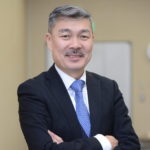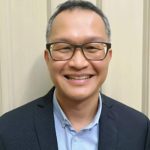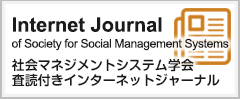Invited Lectures
SEPTEMBER 11, 2019
Lecture Room 15, 2F, Faculty of Engineering Bld. 1
- INVITED LECTURE 1 9:40-10:30
Title: “The Governance is Indispensable for the Resilience of Social System”
Prof. Satoshi Fujii, Department of Urban Management, Kyoto University, Japan
Dr. Satoshi Fujii is a professor of public policy including macro economic policy, city and national land planning and building national resilience in the Department of Urban Management at Kyoto University. He was a special advisor to the Japanese Cabinet since 2012 until 2018, to advice a policy of macro economic policy by fiscal expansion and building national resilience against national disasters.
- INVITED LECTURE 2 10:40-11:30
Title: “Visioning National Design for the 22nd Century”
Prof. Taikan Oki, Global Hydrology and Water Resources Engineering, The University of Tokyo, Japan
His areas of expertise are global hydrology and the sustainability of world water resources including the virtual water trade and water footprint. He was one of the coordinating lead authors for the chapter “Freshwater Resources” of the IPCC WGII AR5. Concurrently appointed as a Special Advisor to the President and a Professor (Integrated Research System for Sustainability Science) of The University of Tokyo. He got many awards including the Biwako Prize for Ecology in 2011. He is the first Japanese AGU Fellow in its Hydrology Section (2014).
SEPTEMBER 12, 2019
Lecture Room 15, 2F, Faculty of Engineering Bld. 1
- INVITED LECTURE 3 9:00-9:50
Title: “Rethinking the Urban Commons in the Age of Social Archipelagos”
Dr. Apiwat Ratanawaraha, Department of Urban and Regional Planning, Chulalongkorn University, Thailand
Apiwat Ratanawaraha is an associate professor at the Department of Urban and Regional Planning, Chulalongkorn University in Bangkok. His teaching and research cover land policy and management, infrastructure finance, technology and innovation policy, and strategic foresight. His recent and ongoing research focuses on urban issues in Thailand, including the futures of Thai urban life from womb to tomb, foreign ownership of land, informal mobility, parking policy, and urban citizen science. His publications include The Land Economy of Thailand (2015), How Operators’ Legal Status Affects Safety of Intercity Buses in Thailand (with S. Chalermpong, TRR, 2672 (31), 2018); and a chapter on Bangkok in Parking: An International Perspective (with S. Chalermpong, Elsevier, forthcoming). Apiwat holds a B.Eng. in Urban Engineering from the University of Tokyo, an M.Phil. in Land Economy from the University of Cambridge, and an MCP and a Ph.D. in Economic Development and Technology Policy from MIT. He was a visiting assistant professor at the MIT Department of Urban Studies and Planning and a visiting scholar at the Harvard-Yenching Institute.
- INVITED LECTURE 4 9:50-10:40
Title: “Reforming Land Acquisition and Land Use Policies to Accelerate Infrastructure Investments in Development Countries – Innovative Measures from Empirical Studies on Sharing Spillover Effects between the Government and the Private Sector”
Prof. Naoyuki Yoshino, Dean, Asian Development Bank Institute
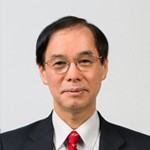
Naoyuki Yoshino obtained his PhD from Johns Hopkins University (United States) in 1979 where his thesis supervisor was Sir Alan Walters, economic adviser to former British Prime Minister Margaret Thatcher. Naoyuki has been a visiting scholar at the Massachusetts Institute of Technology (United States) and a visiting professor at various universities including the University of New South Wales (Australia), Foundation Nationale des Sciences Politiques (France), and University of Gothenburg (Sweden). He has also been an assistant professor at the State University of New York at Buffalo and an economics professor at Keio University.
Naoyuki’s professional career includes membership in numerous government committees. He was named Director of the Japan Financial Services Agency’s (FSA) Financial Research Center (FSA Institute) in 2004 and is now Chief Advisor. He was appointed as Chair of the Financial Planning Standards Board in 2007. He has served as Chairperson of the Japanese Ministry of Finance’s Council on Foreign Exchange as well as its Fiscal System Council (Fiscal Investment and Loan Program Section). Additionally, he has been a Board Member of the Deposit Insurance Corporation of Japan and President of the Financial System Council of the Government of Japan.
Dr. KE Seetha Ram, Asian Development Bank Institute
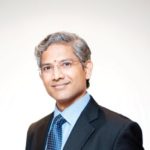 At ADBI, he is task manager for the partnership with the Bill&Melinda Gates Foundation; and advises JR East on human resources development for India’s first high-speed rail. At the University of Tokyo, he teaches and conducts research on policies and institutional mechanisms that attract philanthropy and private finance to build quality public infrastructure in Asia. He obtained his Dr. Eng. from the University of Tokyo in 1990 where his thesis supervisor was Professor Hideo Nakamura, President emeritus of Tokyo City University; M. Eng. from the Asian Institute of Technology in Thailand; and B. Tech. from the Indian Institute of Technology in Madras. He is a fellow at the faculty of engineering of the University of Tokyo. His contributions to publications are available at: https://scholar.google.com/citations?hl=en&authuser=1&user=O1JhICEAAAAJ
At ADBI, he is task manager for the partnership with the Bill&Melinda Gates Foundation; and advises JR East on human resources development for India’s first high-speed rail. At the University of Tokyo, he teaches and conducts research on policies and institutional mechanisms that attract philanthropy and private finance to build quality public infrastructure in Asia. He obtained his Dr. Eng. from the University of Tokyo in 1990 where his thesis supervisor was Professor Hideo Nakamura, President emeritus of Tokyo City University; M. Eng. from the Asian Institute of Technology in Thailand; and B. Tech. from the Indian Institute of Technology in Madras. He is a fellow at the faculty of engineering of the University of Tokyo. His contributions to publications are available at: https://scholar.google.com/citations?hl=en&authuser=1&user=O1JhICEAAAAJ - INVITED LECTURE 5 10:50-11:40
Title: “QOL (Quality of Life) based Planning of Transport and Urban Development”
Prof. Yoshitsugu Hayashi, Institute of Science and Technology Research, Chubu University, Japan
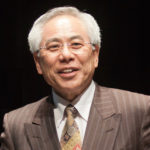
Yoshitsugu Hayashi is Professor of Chubu University as well as Emeritus Professor, Nagoya University, Japan, as well as Distinguished Visiting Professor of Tsinghua University, China. He is also one of the100 Full members of “Club of Rome” consisting of world-wide leading politicians, business people and academicians, which is well known by its 1st report “The Limit to Growth” in 1972 < https://www.clubofrome.org>. He was 6th President of WCTRS (World Conference on Transport Research Society) (2013-2019) which attracts about 2,000 members from more than 70 countries < http://www.wctrs-society.com/>.
Professor Yoshitsugu Hayashi’s background is Civil Engineering. The major fields of research are analysis and modelling of transport – land use interactions and the countermeasure policy to overcome negative impacts of urbanisation and motorisation. The results are published in such books as “Land Use, Transport and The Environment (1996)”, “Urban Transport and the Environment – An International Perspective (2004)”, “Intercity Transport and Climate Change – Strategies for Reducing the Carbon Footprint (2014)”, the Japanese Edition of “Factor 5 (2014)” originally authored by Ernst Ulrich von Weizsaecker, “Come on : Capitalism, Short-termism, Population and the Destruction of the Planet-(2017 Club of Rome Report) ” edited by Weizsaecker and Wijkman, et.al, etc.
An application to practice includes his proposition of rail transit oriented urban reform to overcome Bangkok’s hyper congestion as the leader of JICA project in mid 90’s, which became the trigger to reverse the budget of road vs. rail from 1:99 in 90’s to 82:14 in Transport 2020 Plan. He is also now a JICA/JST big research project leader of “e-Integrated Smart Transport to Dually Achieve CO2 Reduction and People’s Well-Being to support THAILAND 4.0”.
He has experienced also Board member of the Engineering Academy of Japan, Ex-Vice President of JSCE (Japan Society of Civil Engineers) in charge of Redesigning Japan to be Resilient, Leader of a Global Center of Excellence Programme “From Earth System Science to Basic and Clinical Environmental Studies”, and Leader of “Smart Shrink” movement as a key strategy for declining and aging cities. The results are published in such books as “Sustainability – Future Balance between Nature and Civilisation”(2010), “Diagnosis and Prescription for China’s Urbanisation – Paradigm Change of Development and Growth (2014)”, “Climate Change, Energy Use, and Sustainability: Diagnosis and Prescription after the Great East Japan Earthquake”(2016), “Disaster Resilient Cities – Concepts and Practical Examples (2016)”, etc.

